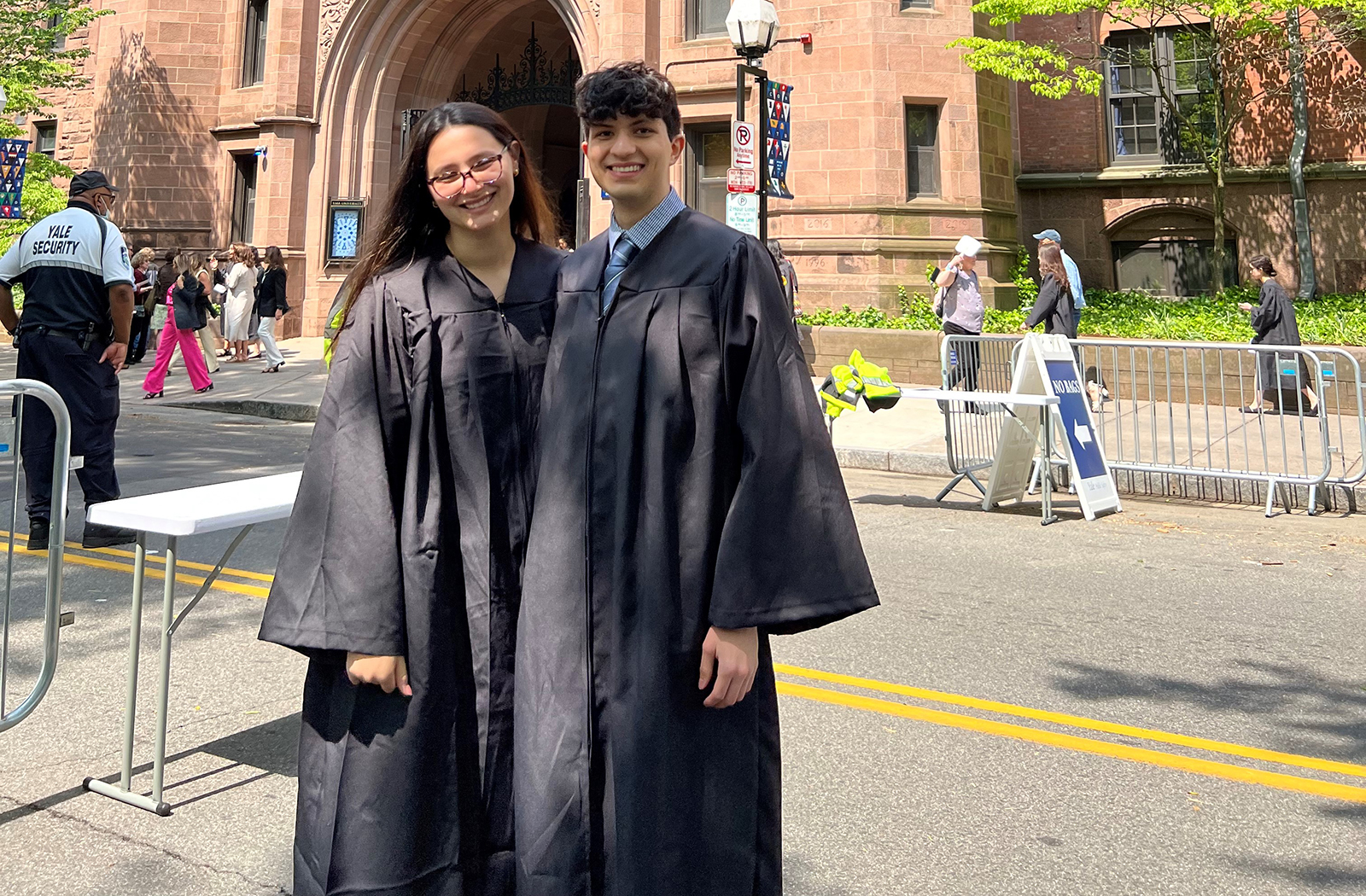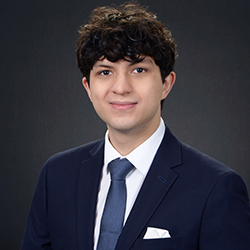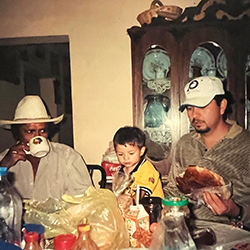
White Coat Profile: Jerry Ruvalcaba

The White Coat Ceremony marks the first time a medical student will don his or her white coat, the defining symbol of a physician. The coat bestows a great honor on each student, and with it comes a responsibility to uphold the trust of every patient they will encounter. The Class of 2028 will receive their white coats on July 19 during a ceremony that begins at 3:30 p.m. in the West Ballroom of the Phoenix Convention Center downtown.
Meet Jerry Ruvalcaba
Originally from East Los Angeles, California, Jerry Ruvalcaba attended Yale University for his undergraduate studies and graduated with Molecular, Cellular and Developmental Biology as his major and Data Science as a minor.

He is interested in how he can use his cultural background to change how medicine is provided in urban communities.
Ruvalcaba credits his family and friends as his biggest supporters. His parents immigrated to the United States from Mexico when they were both young. They grew up impoverished in rural Mexico and came to the United States for a better life for their children.
“They are the hardest workers I know, and they instilled in me that drive to improve through education and hard work,” Ruvalcaba said. “At the same time, I was taught to never forget my roots and use the privilege of higher education to uplift my community and those like them.”
Path toward Medicine
What was the spark that led you to become a physician?
There was no singular event that led me to become a physician, but my early experiences of seeking health care in a medically underserved area stuck with me. Through high school and college, I learned that the health care limitations we faced in my community — long wait times, language barriers, education barriers — significantly affected our health and overall quality of life.
It was then that I realized medicine, specifically as a physician, was the only career where I could make a difference at the individual level.
Did you do any volunteering in health fields prior to medical school?
I served as a volunteer for several years in Haven Free Clinic, serving New Haven, Connecticut’s underinsured population. Through this, I provided Spanish translation services and general patient support. It was a privilege to work with these patients and getting to know each of them over the years was incredibly rewarding.
The College of Medicine – Phoenix
Why did you choose the College of Medicine – Phoenix?
As someone planning to pursue primary care, I admire that the University of Arizona College of Medicine – Phoenix is especially focused on tackling our nation's primary care physician shortage.

In addition, Phoenix incorporates patient-facing experiences very early in our medical training, making us exceedingly well prepared for our clinical encounters. On a side note, Phoenix’s proximity to my home city of Los Angeles means that my critical support network is only a quick flight away.
What excites you most about beginning medical school?
I am excited to be surrounded by so many intelligent and passionate peers who all share the goal of improving medical care. Having gone through orientation thus far, I’ve loved getting to know each of my peers’ stories and their own desire to contribute to medicine.
Significance of the White Coat
What does the white coat mean to you?
To me, the white coat means commitment to a life of service. It is both a commitment to develop an intricate knowledge base but also the ability to connect to patients.
About the College
Founded in 2007, the University of Arizona College of Medicine – Phoenix inspires and trains exemplary physicians, scientists and leaders to advance its core missions in education, research, clinical care and service to communities across Arizona. The college’s strength lies in our collaborations and partnerships with clinical affiliates, community organizations and industry sponsors. With our primary affiliate, Banner Health, we are recognized as the premier academic medical center in Phoenix. As an anchor institution of the Phoenix Bioscience Core, the college is home to signature research programs in neurosciences, cardiopulmonary diseases, immunology, informatics and metabolism. These focus areas uniquely position us to drive biomedical research and bolster economic development in the region.
As an urban institution with strong roots in rural and tribal health, the college has graduated more than 1,000 physicians and matriculates 130 students each year. Greater than 60% of matriculating students are from Arizona and many continue training at our GME sponsored residency programs, ultimately pursuing local academic and community-based opportunities. While our traditional four-year program continues to thrive, we will launch our recently approved accelerated three-year medical student curriculum with exclusive focus on primary care. This program is designed to further enhance workforce retention needs across Arizona.
The college has embarked on our strategic plan for 2025 to 2030. Learn more.